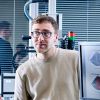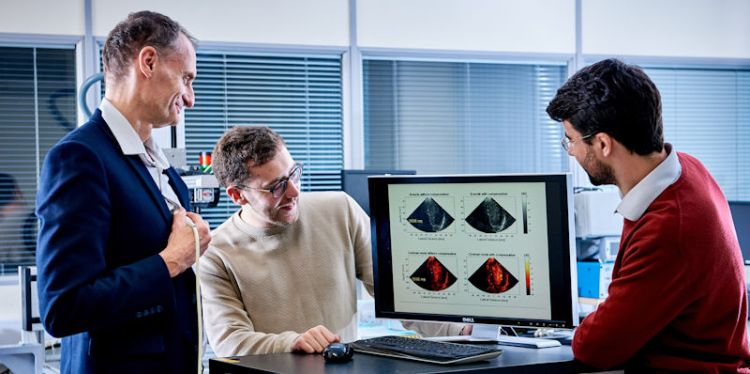
Harry Clegg
- Course: Embedded systems PhD
- PhD title: Beamformer Hardware Acceleration for High Frame Rate Ultrasound Imaging
Harry Clegg is currently pursuing his PhD in the School of Electronic and Electrical Engineering.
From undergraduate student to postgraduate researcher
Harry Clegg was an Electronic Engineering BEng, Meng student at the University of Leeds. While working on his master’s project, he found himself developing a keen interest in embedded systems and digital signal processing.
Harry was taught by Professor Steven Freear, who was seeking PhD students interested in embedded systems. Therefore, the project Harry was working on at that time provided a natural progression into a PhD in engineering with the Ultrasound Group, being supervised by Dr David Cowell and Professor Steven Freear. Harry talked about his impetus to conduct postgraduate research. He said:
“Although my master’s project was fulfilling, it was too limited in time and scope for me to undertake meaningful research. A PhD with the Ultrasound Group seemed the obvious choice to allow me to explore the field further.”
Harry is currently working on the design of next-generation ultrasound imaging and therapy systems.
“I hope to develop enabling technology to allow better high-performance ultrasound systems, which cost less and are suitable for use by researchers from non-engineering backgrounds,” Harry explained.
One specific aspect of Harry’s research is the use of Field-Programmable Gate Arrays (FPGAs) for beamforming (turning raw digital data into images in real-time) and techniques for multi-mode theranostics (using both ultrasound images for diagnostics and high-energy ultrasound for therapy at the same time).
Harry explains what carrying out his involved. He said: “I spend a lot of my time developing novel techniques, tools and software for use by others to enable their application-based ultrasound research.“
Harry also talked about his motivation to continue his research at Leeds. He added:
“The ultrasound systems developed at Leeds form one of the world’s leading ultrasound research platforms, and the technical challenge of designing and building such systems, as well as the data and signal processing requirements present some very exciting engineering research opportunities.”
The ultrasound systems developed at Leeds form one of the world’s leading ultrasound research platforms, and the technical challenge of designing and building such systems... presents some very exciting engineering research opportunities.
A community of researchers
Harry recognises the common interest for embedded systems development shared with his supervisors. Harry spends every day working directly with his supervisors, but there are also arranged regular formal meetings where he can discuss the overall progress of his PhD as well as any problems. With regards to the available support, Harry added:
Between my supervisors, the school, and the wider Doctoral College, there is no shortage of support available for any problems that may be encountered, whether they are technical, administrative or otherwise.
Between my supervisors, the school, and the wider Doctoral College, there is no shortage of support available...
Harry is part of the Ultrasonics and Embedded Systems research group, which is part of the Institute of Robotics and Autonomous Systems at Leeds.


